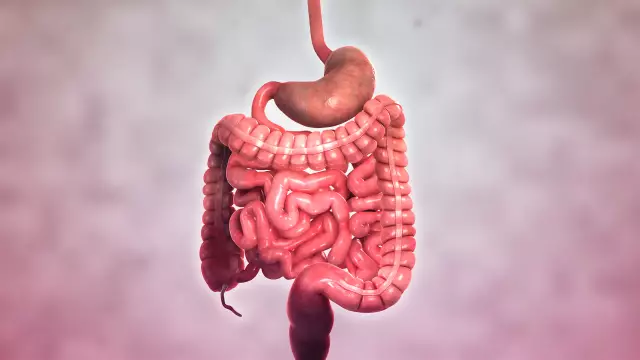- Author Rachel Wainwright wainwright@abchealthonline.com.
- Public 2023-12-15 07:39.
- Last modified 2025-11-02 20:14.
Tetanus
Brief description of the disease and its prevalence in modern conditions

Tetanus is one of the most dangerous infectious diseases, characterized by the release of a deadly toxin and an extremely rapid clinical course. To understand the severity of tetanus, it is enough to know that 30 to 50% of patients die, even if they are vaccinated against tetanus. In regions where medical care is very poorly developed, the death rate of patients can reach 85-90%.
Tetanus is caused by the vital activity of bacteria that enter the body through wounds and other damage to the skin. The most favorable conditions for the reproduction of tetanus pathogens are formed in hot and humid environments, so the greatest number of tetanus deaths is recorded in the equatorial countries of Africa, Asia and Latin America. However, in relatively prosperous Europe, tetanus takes away thousands of lives every year, so there is still no need to talk about its safety for developed regions.
The causative agent of tetanus and routes of infection
Tetanus pathogens belong to the Bacillaceae family. Under normal conditions, tetanus pathogens multiply in the intestines of animals and humans without causing any harm. When injected into the wound and the absence of oxygen, previously peaceful bacilli completely change. They begin to actively secrete a toxin, which is considered one of the strongest bacterial poisons. It works very quickly, and the first signs of tetanus are observed in humans within a few hours after infection. We also note that the waste products of pathogens are not absorbed through the mucous membrane and are completely safe when swallowed, although they die very quickly when heated and exposed to ultraviolet radiation.
As already mentioned, a tetanus shot may be needed for a person with injuries and damage to the skin or mucous membranes. The most dangerous in this regard are deep puncture wounds, inside of which ideal conditions are formed for the development of harmful microorganisms. In addition, the infection can be activated by burns, frostbite, inflammatory diseases. Tetanus is transmitted to a newborn baby through an umbilical cord cut with poorly processed instruments.
Caution should be observed always and everywhere, because in some cases the infection is introduced into the body even through small wounds that have arisen, say, when you step on a thorny plant with your bare foot or accidentally damage your skin with a splinter.
The clinical picture and symptoms of tetanus
Scientists distinguish 4 periods of the disease.
Symptoms of tetanus during the incubation period - has a duration from several hours to 60 days. At this stage, bacteria enter the nutrient medium and begin to multiply with the release of toxin. Patients may experience headache, sweating, muscle tension, increased irritability, chills, insomnia, and other neuropsychiatric disorders.
Symptoms of tetanus at the initial period - patients have dull drawing pains in the wound area. At the same time, the first characteristic signs of tetanus appear, for example, trismus - a convulsive contraction of the chewing muscles due to which it is sometimes impossible to open the mouth.
Symptoms of tetanus during the height of the disease - usually last 8-12 days, but in severe cases this period can increase 2-3 times. The duration of the active phase of tetanus depends on how soon the patient went to the doctor, whether he was vaccinated against tetanus, how large the damage to the skin is. At this stage, the main symptoms of infection appear in full force:
- convulsions of facial muscles, as a result of which a person has a characteristic "smile";
- difficulty swallowing food;
- strong muscle tension in the limbs and abdomen;
- painful cramps;
- profuse sweating;
- persistent insomnia;
- apnea, cyanosis, asphyxia;
- disorders of urination and blood circulation;
- heat
If a person is not vaccinated against tetanus, they usually die from a spasm of the respiratory muscles or paralysis of the heart muscle. Other factors also lead to death: myocardial infarction, sepsis, embolism, pneumonia.
The recovery period - in the event that the specialists began to treat tetanus on time, the symptoms gradually disappear. This stage can last for 2 months, and all this time the patient is especially at risk of developing various complications, so it is necessary to constantly monitor his condition.
Tetanus treatment
All tetanus treatments should be administered by experienced physicians in a hospital setting. Treatment for tetanus includes:
- fight against tetanus pathogens in the area of the primary focus (opening the wound, removing dead skin, sanitation and aeration);
- the introduction of anti-tetanus serum;
- relief of severe seizures;
- maintaining the vital functions of all body systems;
- prevention of complications;
- good nutrition, rich in vitamins and minerals to strengthen the immune system.

It is advisable to place a tetanus patient in a separate ward in order to avoid the negative influence of external stimuli. A round-the-clock post is organized at his bedside for constant monitoring of a person's condition. If the patient cannot take food on his own, he is injected with it using a special probe. Liquid food products (milk, broths, fruit drinks) are recommended. There should be enough water to replace the loss of fluid from sweating. Tetanus treatment lasts 1 to 3 months.
Prevention of tetanus
Tetanus prophylaxis is carried out in several directions at once. It is especially important to avoid injury and to carry out information work among the population. In addition, tetanus shots are given to children between the ages of 6 months and 17 years. If it was not possible to avoid serious injuries, then emergency tetanus prophylaxis is recommended to all unvaccinated people.
YouTube video related to the article:
The information is generalized and provided for informational purposes only. At the first sign of illness, see your doctor. Self-medication is hazardous to health!






